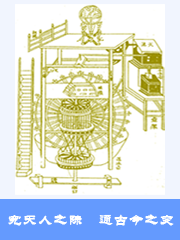- Cathleen PAETHE
Cathleen Paethe (Max Planck Institute for the History of Science/Friedrich-Alexander-Universit?t Erlangen-Nürnberg)
Curriculum Vitae
Cathleen Paethe holds a Master’s degree (Magistra Artium) of Sinology and Chinese Language from Free University of Berlin and of Library Science from Humboldt University of Berlin. She received a one-year DAAD scholarship at the Anhui Normal University and a one-year CAS/MPIWG scholarship at the National Science Library (CAS).
She works as a visiting scholar at the Max Planck Institute for the History of Science (MPIWG), Germany.
Her research interests include the history of libraries and book collections, book and reading culture and classification and transmission of knowledge in traditional China.
Current project:
The Bibliophile Qi Chenghan: Book Consumption and Commercialization in Late Ming China
This project deals with one of the largest private library Dansheng tang of Qi Chenghan (1565–1628) in Shanyin of the Late Ming period (ca. 1550–1644).
Private bibliophiles had become a common phenomenon in the Late Ming era's commercialized world and its significant expansion in the supply of books, both in terms of quantity and quality. Representative collections were built up, with some of them projecting general knowledge ideals and others counting on individuality.
Exemplifying by way of one book collector, this project delineates the changes of a library's contents and organization within a period of great political, cultural and intellectual transformation. The bibliophile is examined in his role as the consumer and producer of books as well as on his function for the transmission and circulation of knowledge in China's late 16th and early 17th century. Keywords are networks of knowledge and the purpose of knowledge for identity construction and social status. The representation of the library in the catalogue, its public face, gives view to the social function of knowledge assignments.
Within all that, intellectual and material networks were necessary to built up and maintain the library. In addition to the explicit, established or legitimated network patterns that are already widely known, this study will uncover implicit intellectual and political networks and analyze their forms and functions.




